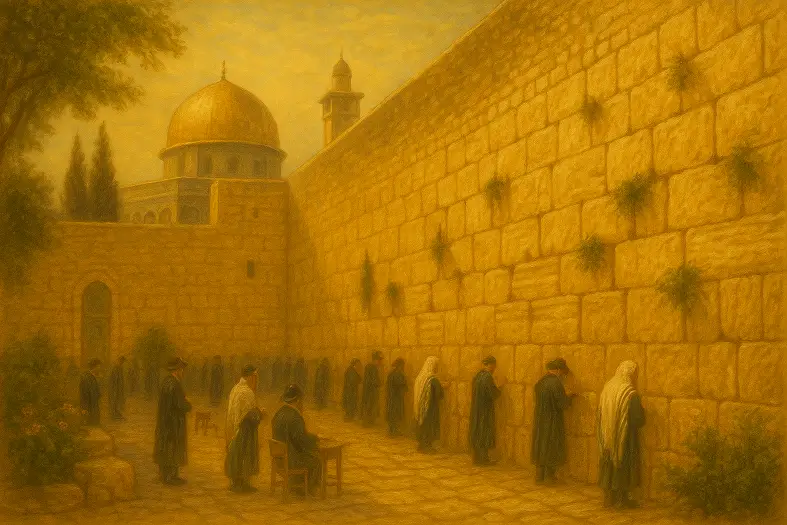


Every day, two lambs must be offered as a continual burnt-offering — one in the morning and one in the evening.
This mitzvah establishes the Korban Tamid, the continual burnt-offering that frames each day’s avodah in the Beit HaMikdash. One lamb was brought in the morning (Tamid shel Shachar) and one in the evening (Tamid shel Bein Ha’arbayim). It served as the foundation of the sacrificial service, upon which all other offerings were arranged.
The Talmud (Berachot 26b) teaches that the daily prayers of Shacharit and Minchah parallel the Tamid offerings. Rambam notes that this mitzvah embodies the constancy of Israel’s devotion to Hashem, never interrupted, even for a single day. Sefer HaChinuch explains that the regularity of the Tamid trains the heart in daily service and reminds Israel that their lives are bound to Hashem’s Presence. Rashi comments that the term “tamid” (continual) emphasizes unbroken devotion. Ramban sees the Tamid as the covenantal heartbeat of Israel, symbolizing constant relationship and Divine dwelling.
Commentary & Classical Explanation:


Represents the concept of spiritual intentionality, purity, and sanctity—set apart for a higher purpose.
Concerns the Beit HaMikdash, korbanot (offerings), and priestly service.
Focuses on the daily act of prayer and connection to Hashem through words, kavana, and structure.
Represents Emunah—the deep, inner trust in Hashem’s presence, oneness, and constant involvement in our lives. This badge symbolizes a heartfelt connection to G-d, rooted in belief even when we cannot see. It is the emotional and spiritual core of many mitzvot.
Mitzvot that strengthen communal life — showing up, participating, supporting, and belonging. Community is where holiness is shared, prayers are multiplied, and responsibility becomes collective.
Signifies awe and reverence toward Hashem—living with awareness of His greatness and presence.
Tied to the eternal covenant between G‑d and the Jewish people, including signs like brit milah and Shabbat.
Mitzvot that define and deepen the relationship between a person and their Creator. These include commandments involving belief, prayer, Shabbat, festivals, sacrifices, and personal holiness — expressions of devotion rooted in divine connection.

Dive into mitzvos, prayer, and Torah study—each section curated to help you learn, reflect, and live with intention. New insights are added regularly, creating an evolving space for spiritual growth.

Explore the 613 mitzvos and uncover the meaning behind each one. Discover practical ways to integrate them into your daily life with insights, sources, and guided reflection.

Learn the structure, depth, and spiritual intent behind Jewish prayer. Dive into morning blessings, Shema, Amidah, and more—with tools to enrich your daily connection.

Each week’s parsha offers timeless wisdom and modern relevance. Explore summaries, key themes, and mitzvah connections to deepen your understanding of the Torah cycle.